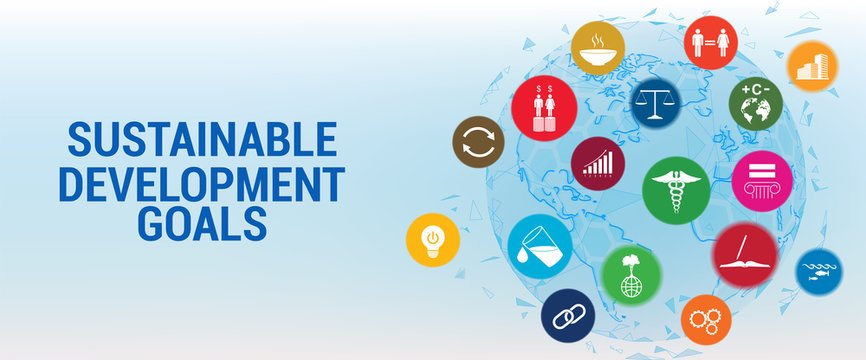•Experts fear chronic disease may escalate any time
By Doris Obinna
About 422 million people worldwide have diabetes, the majority living in low and middle-income countries, and 1.5 million deaths are directly attributed to diabetes each year. The number of cases and the prevalence of diabetes have been steadily increasing over the past few decades.
Diabetes is a chronic disease that occurs when the body doesn’t produce enough insulin or can’t use insulin properly. This leads to high blood sugar levels, which can damage the heart, blood vessels, eyes, kidneys, and nerves over time.
Today, as the global world commemorates World Diabetes Day (WDD), experts call attention to the necessity of routine checks to control diabetes.
Experts say that diabetes is a growing problem in Nigeria, and there are many challenges to providing optimal care for people with diabetes as the prevalence of diabetes in Nigeria is increasing.
Every November 14, World Diabetes Day is commemorated. This is an opportunity to raise awareness about the impact of diabetes on people’s health and to highlight the opportunities to strengthen the prevention, diagnosis, and treatment of diabetes.
This year’s theme, “Breaking Barriers, Bridging Gaps,” underpins World Health Organisation (WHO) commitment to reducing the risk of diabetes and ensuring that all people diagnosed with diabetes have access to equitable, comprehensive, affordable, and quality treatment and care. Join us in raising awareness, spreading knowledge, and creating lasting change for all affected by diabetes.
According to the WHO, the most common is type 2 diabetes, usually in adults, which occurs when the body becomes resistant to insulin or doesn’t make enough insulin.
“In the past three decades the prevalence of type 2 diabetes has raised dramatically in countries of all income levels. Type 1 diabetes, once known as juvenile diabetes or insulin-dependent diabetes, is a chronic condition in which the pancreas produces little or no insulin by itself.
“For people living with diabetes, access to affordable treatment, including insulin, is critical to their survival. There is a globally agreed target to halt the rise in diabetes and obesity by 2025.”
Speaking, Lagos State Commissioner for Health, Prof. Akin Abayomi, said diabetes and by extension hypertension are leading causes of disability and death globally.
He added that early detection and management of these conditions are vital to reducing the risk of serious complications, including heart disease, stroke, and kidney failure.
Abayomi, emphasizing the importance of health screenings in combating the diseases said it has contributed significantly to the disease burden in Nigeria also announced screening campaign, tagged: “Know Your Numbers, Control Your Numbers.”
He added that the screening would run till Sunday, 17th November 2024 from 9a.m. daily at designated general hospitals and primary health centres across all local government areas while also encouraging proactive steps in controlling blood pressure and blood sugar levels.
“Early detection and management of these conditions are vital to reducing the risk of serious complications, including heart disease, stroke, and kidney failure,” he added.
The Special Adviser to the Lagos Governor on Health, Dr. Kemi Ogunyemi, added that screenings are scheduled to be held across 30 general hospitals and 300 primary health centres across Lagos, with the ministry of health coordinating efforts to maximize reach and accessibility. “Screening sites are strategically distributed to cover various local government areas, ensuring easy access for residents.”
Causes
According to WHO, there is no single cause of diabetes, but a combination of factors can contribute to its development. “The cause of diabetes depends on the type of diabetes, and can include:
“Type 1 diabetes, which is an autoimmune disease, occurs when the body’s immune system attacks the pancreas’ insulin-producing cells. Genes and environmental factors, such as viruses, may trigger the disease.
“While type 2 diabetes, usually caused by insulin resistance, a condition where the body’s cells don’t respond properly to insulin, risk factors include being overweight or obese, being physically inactive, having a family history of type 2 diabetes and eating a diet high in refined carbs, red and processed meats, and sugar-sweetened beverages.”
Symptoms
“For type 1 diabetes include the need to urinate often, thirst, constant hunger, weight loss, vision changes and fatigue. These symptoms may occur suddenly. For type 2 diabetes are generally similar to those of type 1 diabetes but are often less marked. As a result, the disease may be diagnosed several years after onset, after complications have already arisen. For this reason, it is important to be aware of risk factors.”
Diabetes and well-being
The United Nations (UN) declared diabetes and well-being as the theme for World Diabetes Day 2024 to 2026. “With appropriate access to diabetes care and support for their well-being, everyone with diabetes has the chance to live well.
“Millions of people with diabetes face daily challenges managing their condition at home, work, and school. They must be resilient, organised, and responsible, impacting both their physical and mental well-being. Diabetes care often focuses only on blood sugar, leaving many overwhelmed. This World Diabetes Day, let’s put well-being at the heart of diabetes care and start the change for a better diabetes life:
Treatment
“Treatment for diabetes in Nigeria includes insulin, oral hypoglycemic agents, dietary counseling, and lifestyle modification.
“Type 1 diabetes cannot currently be prevented. Effective approaches are available to prevent type 2 diabetes and to prevent the complications and premature death that can result from all types of diabetes
“These include policies and practices across whole populations and within specific settings (school, home, and workplace) that contribute to good health for everyone, regardless of whether they have diabetes, such as exercising regularly, eating healthily, avoiding smoking, and controlling blood pressure and lipids:
Living well with diabetes
“The starting point for living well with diabetes is an early diagnosis – the longer a person lives with undiagnosed and untreated diabetes, the worse their health outcomes are likely to be. Easy access to basic diagnostics, such as blood glucose testing, should therefore be available in primary health care settings. Patients will need periodic specialist assessment or treatment for complications.
“The rising burden of diabetes has a huge cost on individuals, society and the Nigerian government. However, a series of cost-effective interventions can improve patient outcomes, regardless of what type of diabetes they may have. These interventions include: blood glucose control through a combination of diet, physical activity and, if necessary, medication; control of blood pressure and lipids to reduce cardiovascular risk and other complications; and regular screening for damage to the eyes, kidneys and feet to facilitate early treatment.
“Also, there is a need for better patient education. Many patients, especially children, die from diabetes because their families cannot afford the necessary healthcare.”
Risk factors
“Risk factors for diabetes in Nigeria include physical inactivity, unhealthy diet, advancing age, and living in an urban area.
“Others include: being overweight or obese, or having a large waist circumference, the risk of developing type 2 diabetes increases with age, especially after age 35. Family history; having a parent or sibling with type 2 diabetes and people of certain races and ethnicities, including black, Hispanic, native American and Asian people, and Pacific Islanders, have a higher risk, being physically active less than three times a week and high blood pressure.
“Also, high cholesterol or other fats in the blood, a condition where blood sugar levels are higher than normal, but not high enough to be classified as diabetes and having had gestational diabetes or giving birth to a baby who weighed over 9 pounds. Again, not getting enough sleep, or sleeping for too long as well as eating full sugar fizzy and energy drinks, refined carbs such as white bread, white rice and sugary breakfast cereals and red and processed meats,” WHO stated.







